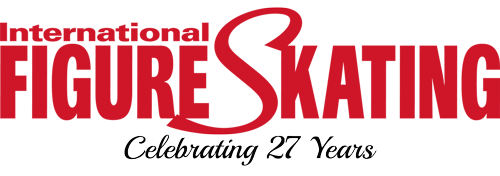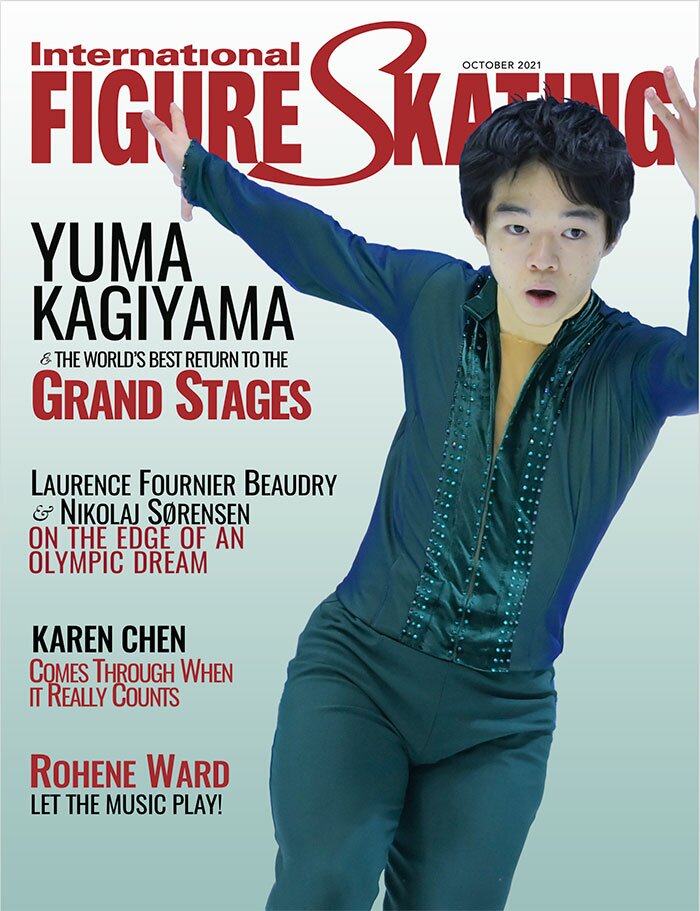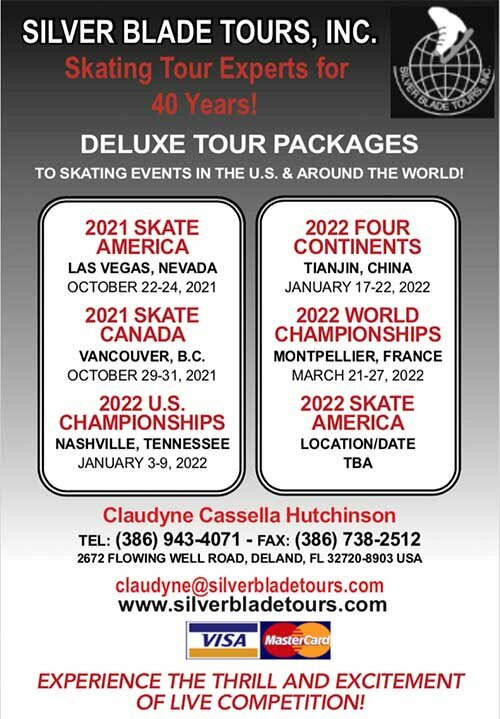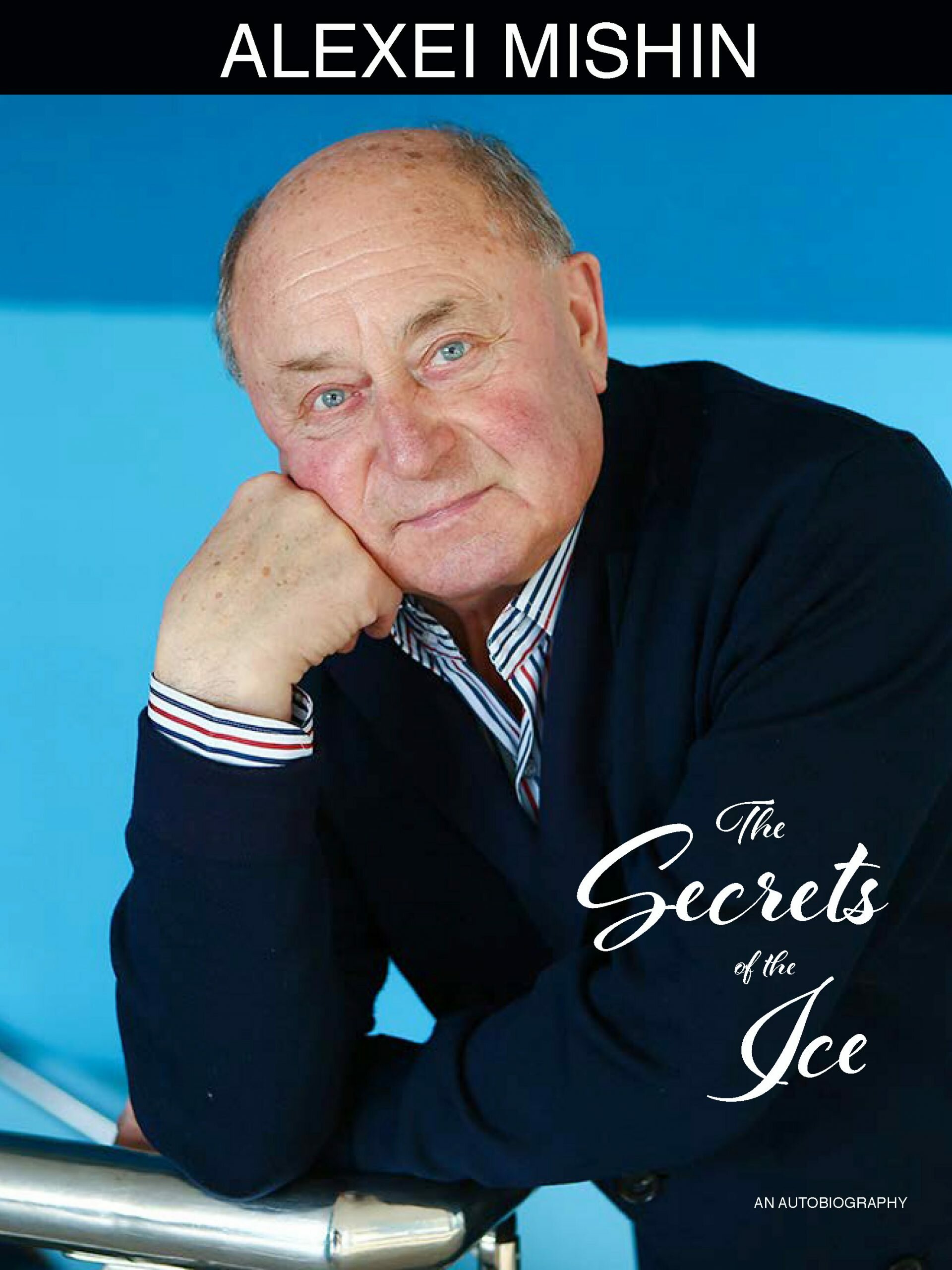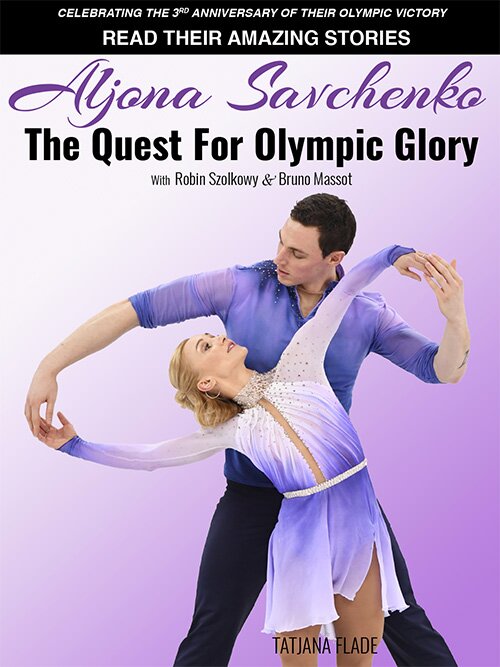
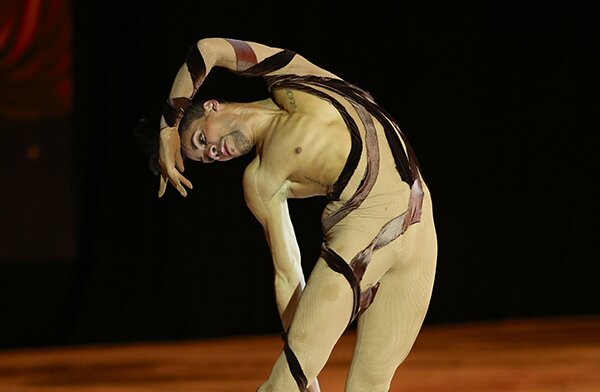
Rohene Ward has earned global recognition for his work as a choreographer, particularly for the programs he has created for the American skater Jason Brown. But getting to this point in his life and career has been a long and often disappointing journey.
As a skater of mixed race, his competitive career was a series of highs and lows, both on and off the ice. However, after retiring in 2008, Ward found his calling and went on to develop a successful career on the other side of the boards.
Can you tell us about your family background and how you got into figure skating?
I grew up in North Minneapolis. My father was African American, and my mom is Puerto Rican. My parents never married, and they split up when I was a child. I have five brothers and sisters and I am the baby. My father had another family, but I did not meet any of my siblings until his funeral seven years ago.
I played hockey for a year at age 7 and started figure skating a year later. I began skating after going on a field trip with a summer camp and we went to a rink. After I put my skates on, I jumped onto the ice and once I got my bearings I just took off like a rocket. The guards had to come and pull me off the ice when it was time to go. A coach who was there saw me and said I should be put into lessons. The camp counselor told my mother that a coach was interested in my skating and that I was very talented, but she was like ‘whatever.’ It was my uncle who enrolled me in learn- to-skate classes. I have been skating ever since.
Who coached you during your career and who choreographed your programs?
Gailene Norwood coached me my entire career. I had other coaches that I worked with, but she was like my grandmother. But she knew she could only take me so far, so once I got my doubles she introduced me to Page Lipe. But Gailene still picked me up every day and drove me to the rink. She was my grandmother, chauffeur, everything. I was with Gailene for about 22 years and with Page for 18.
I choreographed almost all of my programs myself. I had a ballet teacher that did some programs for a year when I was a junior, but I did all of them as a senior.
How would you describe yourself as a competitor?
I was very nervous. I was a supporter and cheerleader for everyone except myself at competitions. Essentially, I loved competing — I was just horrible at it. I never withdrew from a single competition; I never backed down from a challenge. But that was not the issue. I was just not good at competing and I did get very nervous because I knew I was not good at it. But I loved going to competitions and I loved being in front of an audience.
You are known for your flexibility. How did that develop?
I was very into dance as a child and from the moment I started skating I wanted to be the best at everything. That meant I had to have better spirals than the girls, I had to have better laybacks than the girls, and I had to have all my triples in both directions. It was just all about being the best and being the best person I could be. I wanted to be Michelle Kwan and Viktor Petrenko, not just one of the others.
During your career, your goal was to make an Olympic team. When did you realize that was probably not going to happen and how did you deal with that realization?
I pretty much realized that I was not going to the Olympics at every national championships. You know, I would win the warm-up, and then I would get out there for the competition and it just didn’t happen. At 2006 nationals, I landed everything in the warm-up for the free, but in the competition I fell on every jump, which was the exact opposite of the warm-up. It was devastating.
But really, I worked harder than anyone. I was doing ballet three hours a day, five days a week, and I was really dedicated to being the best version of myself both as an artist and as an athlete. In my head, that was what I thought I wanted, but it was not what I wanted in my heart. When I first started skating, I wanted to be a show skater. I wanted to go on tour and perform in front of thousands of people. I forgot that as I started getting older and it became more serious. Then it drifted to becoming an Olympic skater. But really what I wanted was to be a star.
Also, I felt that I could not be the star I wanted to be if I did not go to the Olympics. So it was all of those things collectively. I also had feelings of being unworthy and not credible and not being taken seriously, of being looked at as a talent as opposed to an actual master of my art form and skillset. So that was also frustrating.
When and why did you retire from competitive skating?
I stopped competing in 2008. Gailene had paid for my skating for 18 years so if I was ever going to give her anything in return, my way of giving back to her would be to turn a program into a huge success. That, in my head, was what I was going to do for her. I put a lot of pressure on myself because no one knew that she had paid for my skating for all those years, and that was a long time to pay for something and get no reward in the end.
I also felt like the amount of talent I had and the amount of work I put into my skating would never be recognized because I was not good enough in competition. When Gailene told me she could not pay for my skating anymore I had to stop. I had started coaching under Gailene at age 16. I choreographed my own programs and also for her students. I started doing choreography for other people in 2000. At the same time she told me I could not teach at her rink anymore, so that was also devastating because I did not know what I was going to do. All I knew was her and her rink.
What happened next and how did you and Jason Brown first connect?
After that experience I went into a really deep depression for about seven months. Then, one day, Kori Ade reached out to me and asked if I would help her with Jason. She was going out of town for a few weeks and said she would love for me to keep him company while she was away. That was just before his first nationals in juvenile in 2009. So I left Minneapolis and went to Chicago to work with him. It was an awesome experience, but it was also an eye opener because Jason was an emotional wreck.
Kori had warned me he was a head case and said, “I apologize ahead of time, but just be aware.” The first time he came into the rink something had happened to his skates, he didn’t have his music and his laces were not tied correctly. He was crying before he skated, then he was a disaster and then he cried after he skated.
After that it was great because we ended up creating a lot of work together, but that first experience was overwhelming. Shortly afterwards, Kori said she had a lot of work for me and suggested I move to Chicago permanently. So, four months later, in April 2009, I did.
When did you first start choreographing programs for Jason?
In 2009. I did every program, short and long, through intermediate, novice, his three years in junior and seven years as a senior — other than the three David Wilson did. Jason and I have done a lot of programs together.
Where did the idea for the “Riverdance” (“Reel Around the Sun” by Bill Whelan) program come from?
It came to me in a dream — the audience was on its feet; the ice was covered in flowers and Jason was standing there in a black and green costume. It woke me up; it was about 3 or 4 in the morning and I was like, ‘this is it. He is skating to “Riverdance.” I sent him a text at 4 a.m. telling him, ‘I have your new long program. We are starting it tomorrow.’
I asked Jason if he had ever heard of “Riverdance” and he said no. I was like, ‘what? Call your mother because I bet she has.’ She said she had seen the show live three or four times and it was incredible. The next day we went to his car and listened to the music. He fell in love with it. Then we went onto the ice and started — of all places — with the footwork section.
Did you ever imagine it would become a YouTube sensation that would garner five million hits?
I was not surprised at all. I knew from the moment I started. It was surreal because it was our time. Skating was once again getting recognition. It was about time somebody made people feel something in skating again, and I believed that was what that program was going to do — make people feel something incredible.
This year, we actually did a version of “Riverdance” as a short program. Last year when he came to me, we made three different programs. “Sinnerman” was my first choice. I wanted it for the Olympic season, and I knew it would take two years to develop. We also did “Melancholy,” which he used as an exhibition number — but it was actually made for a short program.
Jason wanted to do “Melancholy” initially because it is an exquisite piece, and it was more in his style. He plays the piano and he skates to piano music like no other. It was so easy for him. Right from the start it felt like he had had it for years.
“Sinnerman” felt like crap at first because it was so difficult and so taxing. Jason was supposed to show Tracy Wilson and Brian Orser both programs, but he never did. I did not know that until about a month later when he was like, “you know, they never saw it.” I told him to show it to them. They absolutely loved it. Brian was like “this is spectacular.”
You are not a fan of using music with lyrics. Why is that?
I do not avoid lyrics, per se. I just don’t like choreographing when someone else is telling us what to do versus listening to the music, having your own interpretation of it and creating your own thing. That is the only reason I do not like using lyrics. You kind of have to do what the lyrics say; otherwise it does not really work. I am an old-fashioned skater. I want to see the musicality. I don’t want the song to make the performance great.
Even though Jason does not have the technical arsenal of the top guys, he has held his own among the top men in the world.
Just jumping and rotating — there are so many other ways of reaching people and making them feel something. Are you able to connect with the audience? Are you able to be present and not be in your head? Some things cannot be taught and that is what is so great about Jason because his artistry is all so innate and natural. Just being a pure skater is so difficult and so underrated.
Is this a philosophy you share with the young skaters that you coach?
Yes. Before quads even became a thing … even though I had a quad when I was skating, I wanted to be the best jumper, the best spinner, the best skater, the best everything, and I instill that in every single one of my students to this day. I have taught this since day one — it is how I teach. The philosophy is you are not doing this for yourself; you are doing this for all the people that are going to come to watch you. I tell all my students that we are not here just to show people how pretty our jumps are. We are here to make them feel something.
This is a performance sport — not the other way around — and as it is a performing sport, it is not just about how many times you can rotate or how many jumps you can land. My main thing is how many people can you touch? Can you leave the ice and have everyone talking about you? How can we make everyone talk about you?
You won your first Choreographer of the Year award in 2015 for “Riverdance.” What did that recognition mean to you?
I was in tears when I found out. It was by far my most rewarding skating moment. I felt like U.S. Figure Skating and the Professional Skaters Association were finally recognizing me for my skills and not just my talent. In a way, they were rewarding me for my longevity, persistence, staying present and being relevant, and trying to always be a better version of myself than I was the year before. I felt like they recognized that I was still developing and growing as an artist myself, and for the first time I was being respected as an athlete, a performer, an artist and a coach and that was really beautiful.
And I won in my hometown of Minneapolis, which was so nice. My family was there; my coaches were there. I sat between Page and Kori, who both supported me. Page supported me as a skater, and Kori supported me as a crazy coach who was often a no-show. Sometimes I would not show up for days or weeks, but she tolerated me because she knew when I showed up the work was incredible. So she let me go through my artsy phase and taught me how to be a more accountable, more professional adult. It was so nice to have them there to share that moment.
I was so grateful and so honored and I was so thankful to Jason for trusting me and believing in me. Everything that I learned and took in from other people I gave to him. Anything I couldn’t do myself or that I thought he could do better than me, I made sure he did it better than me and hoped he could do it better in competition than I did — which he did. So my gift was recognized because of him.
You won the award again in 2017. What programs were you recognized for?
That year I had done programs for 17 American skaters, some of who went to Worlds (Brown, Madison Chock and Evan Bates, and Mariah Bell). (Ward won the award for a third time in 2021 for Brown’s “Sinnerman” short program).
How do you think working with Jason impacts the young students you coach?
They love it. They love his energy, but what I think they love even more is the connection they see between us, how much work we can get done and still have a good time doing it. He trains harder for me than he does for anyone else because of what I train and how I train. He comes to me when he wants that good workout and be pushed to the max. I think the kids are most excited about not seeing him jump but how dedicated he is to pursuing every single detail in practice at every single moment and doing it with a smile, even if it sucks.
How would you describe yourself as a coach at competitions?
It is so funny. I am such a calm coach. I have so much confidence when I walk in the door that I never had myself as a competitor. Jason always said I am much more enjoyable at competitions than I am in practice because I am so calm. I feel like the work has already been done and I believe in the process. Unfortunately, when I was training I did not believe in my own process as much as I believe in my coaching process, so it was difficult for me to be confident. But now that I have learned how to train skaters and how to train myself after going on tour, it is like I took what I was not good at in competition and I applied it to the kids in practice.
That has made them better competitors. And when we get to competitions, I just keep telling them how fabulous they are, how great they are, how fabulous they look and to just take it one thing at a time. Stay in your body and give the judges and audience a show. Give them something to talk about. I just make them feel as great as I possibly can.
In late 2009 you joined the European Holiday on Ice tour. How did you balance that with your coaching career?
About six or seven months after I moved to Chicago, I went on my first tour. From that point on, I toured for nine months of the year, came back to work with Kori for four to eight months and then went back on tour. I did that for about three years while we were in Chicago.
In 2013, Kori told me she was moving to Colorado Springs and asked me to go with her. I was there for three years in between tours. After 2018 nationals I moved to San Francisco and then I went back on tour with Holiday on Ice for almost two years.
Do other people choreograph programs for you on the professional circuit?
Yes. As I said, I rarely had anyone choreograph for me throughout my entire career, so any chance I get to have someone else create a program for me is great. I love having someone use my body in ways that I would not naturally use it. I am able to turn my brain off, which is a beautiful thing because it rarely happens. I hate doing programs for myself these days. I am like, I really just want to hire someone else to do it for me because I spend so much time doing it for other people that when I have to do something for myself, I am like, “Oh God! All that work!”
Are you planning to return to the professional circuit once the touring shows resume?
Yes. I am doing some shows and private stuff throughout this year, and hopefully, at some point this winter I will be able to go back on tour. It will just depend on whether any of my students make it to nationals or whatever. I can’t leave for months at a time anymore because I recently moved to another rink in Chicago and I am busy trying to build a program with my coaching partner Amber Gil. She would not appreciate me being gone so long.
Perceptions are changing in figure skating with respect to race and sexual orientation. What are your thoughts about this?
I believe that sport has no place for race or sexual orientation. Figure skating is a sport; it is what we do, not who we are. I personally never came out; I never told a soul I was gay and I never felt like I needed to. I thought everyone already knew I was gay. I had enough issues being black. No one ever cared in skating that I was gay; they cared that I was black. I don’t know why people feel the need to come out. I know who I am, why do you need to know?
But it is good that people feel they can be who they are today without worrying about any repercussions. I am very happy about that.
RELATED CONTENT:
2021 FINLANDIA TROPHY
2021 CHALLENGER SERIES
